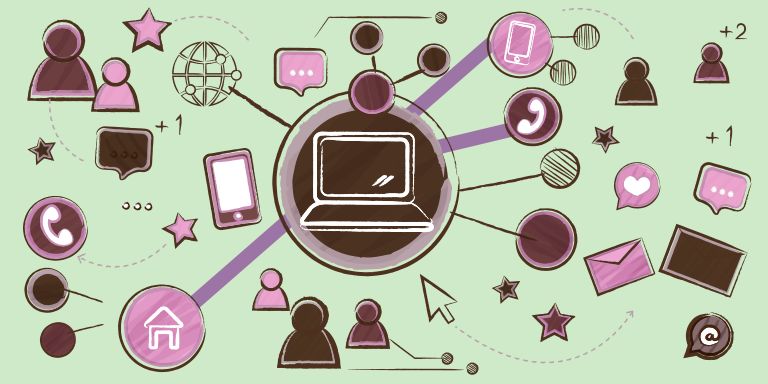The Unspoken Truth About Product Communities: Why “Family” Is Overrated (And What Works Instead) 👥🚀
Picture this: It’s 2 AM. I’m staring at our SaaS dashboard—400 users, flat retention curve. My co-founder whispers: “Maybe we need better ads?” Suddenly, a notification pops up: “User @Jenny modded our tool to track her cat’s naps 😹 Shared code in Discord!”
Lightbulb moment 💡: We weren’t building a product. We were missing a community. Fast-forward 18 months: 92% retention, 30% of features user-sourced, support costs halved. Here’s how we turned users into co-creators (and why you should too).
Why “Build It and They Will Come” Is Dead (RIP 🪦)
Let’s get real:
-
Product-first companies grow linearly 📉
-
Community-first companies grow exponentially 📈
Take Duolingo: Their secret sauce isn’t the owl memes—it’s streak tribes and leaderboards. Users don’t use the app; they belong to it. Harvard research shows community-driven brands achieve 4x faster revenue growth and 6x higher customer lifetime value.
(Source: Harvard Business Review – The Value of Customer Communities)
Community ≠ Audience (The Critical Difference)
| Audience 👂 | Community 🎪 |
|---|---|
| Passive consumers | Active co-creators |
| You broadcast to them | They talk with each other |
| Metrics: Views, clicks | Metrics: Ideas shared, friendships formed |
| Example: Email list | Example: Superhuman’s VIP user council |
We learned this hard way: Our 10K Instagram followers generated fewer feature ideas than our 200-member Slack group.
The “Crew Manifesto”: 4 Non-Negotiables We Live By
1. Shared Purpose > Product Features

People rally around why you exist, not what you sell.
-
Bad: “Project management software”
-
Epic: “Helping remote teams work like they’re in the same room” (how Notion positions itself)
Our pivot: Stopped selling “design tool.” Started championing: “Democratizing creativity for non-designers.” Cue 500+ user-submitted templates.
2. Create Identity Markers
Humans crave tribal belonging. Give them:
-
Exclusive badges (e.g., “Beta Pioneer” role)
-
Rituals (monthly “Show Your Work” livestreams)
-
Inside jokes (our mascot’s backstory became lore)
Pro tip: Harley-Davidson doesn’t sell motorcycles—it sells membership in an outlaw tribe.
3. Let Them Steer the Ship 🚢
We now ship features in 3 stages:
-
Ideation: Users vote on Trello board
-
Beta-testing: Power users break it first
-
Launch: Co-hosted with top contributors
Result? Our “custom dashboard” feature had 7x higher adoption than top-down releases.
4. Reward Contribution, Not Consumption
Traditional loyalty programs fail. Try:
-
Spotlight user innovations (we blog their hacks)
-
Give community credits (redeem for swag or upgrades)
-
Facilitate peer-to-peer value (like Sephora’s Beauty Insiders exchanging tips)
(Source: CMX Community Industry Report)
The $0 Onboarding Hack That Cut Our Churn
We ditched automated tutorials for:
“Adopt-a-Newbie” Program
-
Match new users with veterans
-
Reward both for first project completion
-
78% stickier retention than control group
Cost: $0. ROI: Priceless.
When Communities Go Wrong (And How to Avoid It)

Problem: Ghost town Slack channels 😶🌫️
Fix: Seed conversations before launch. We “hired” 10 superfans as founding members with early access.
Problem: Toxic members ruining vibes ☣️
Fix: Published a “Community Constitution” co-created with users. Now members self-police!
Problem: Team overwhelmed 👎
Fix: Trained power users as moderators. Gave them custom titles and free subscriptions.
Your 30-Day Community Kickstart 🚀
-
Identify 10 potential advocates (Most active support ticket submitters? Beta testers?)
-
Host a “Founders Circle” Zoom (Ask: “What should we build next?”)
-
Launch a single engagement ritual (e.g., weekly “Feature Friday” preview)
-
Celebrate contributions publicly (Spotlight one user/week)
“Products get replaced. Communities become legacies.”
*— Look at Apple’s cult following surviving 90s near-bankruptcy*
Over to You: What’s one product community you’re obsessed with? Share below—let’s geek out! 👇
Resources to steal:
Remember: People buy belonging first, products second. Build the tribe, and the revenue follows. 🌟
You should also read these…
- closedad.com – false bans wrongful account suspensions
- noepic.com – how to review movies professionally as a hobby
- godwig.com – how to pay off credit card debt fast 5 strategies
- spyfrogs.com – nat type error fixing console connection problems
- noepic.com – random number generator secrets you didnt know abo
- olddry.com – tiktok videos not uploading reasons and fixes
- spyfrogs.com – video not saved after shooting on tiktok
- axtly.com – tiktok live keeps freezing solutions
- getaluck.com – how does the tiktok appeal process work reasons an
- spyfrogs.com – impact protection made easy practical uses of durp
